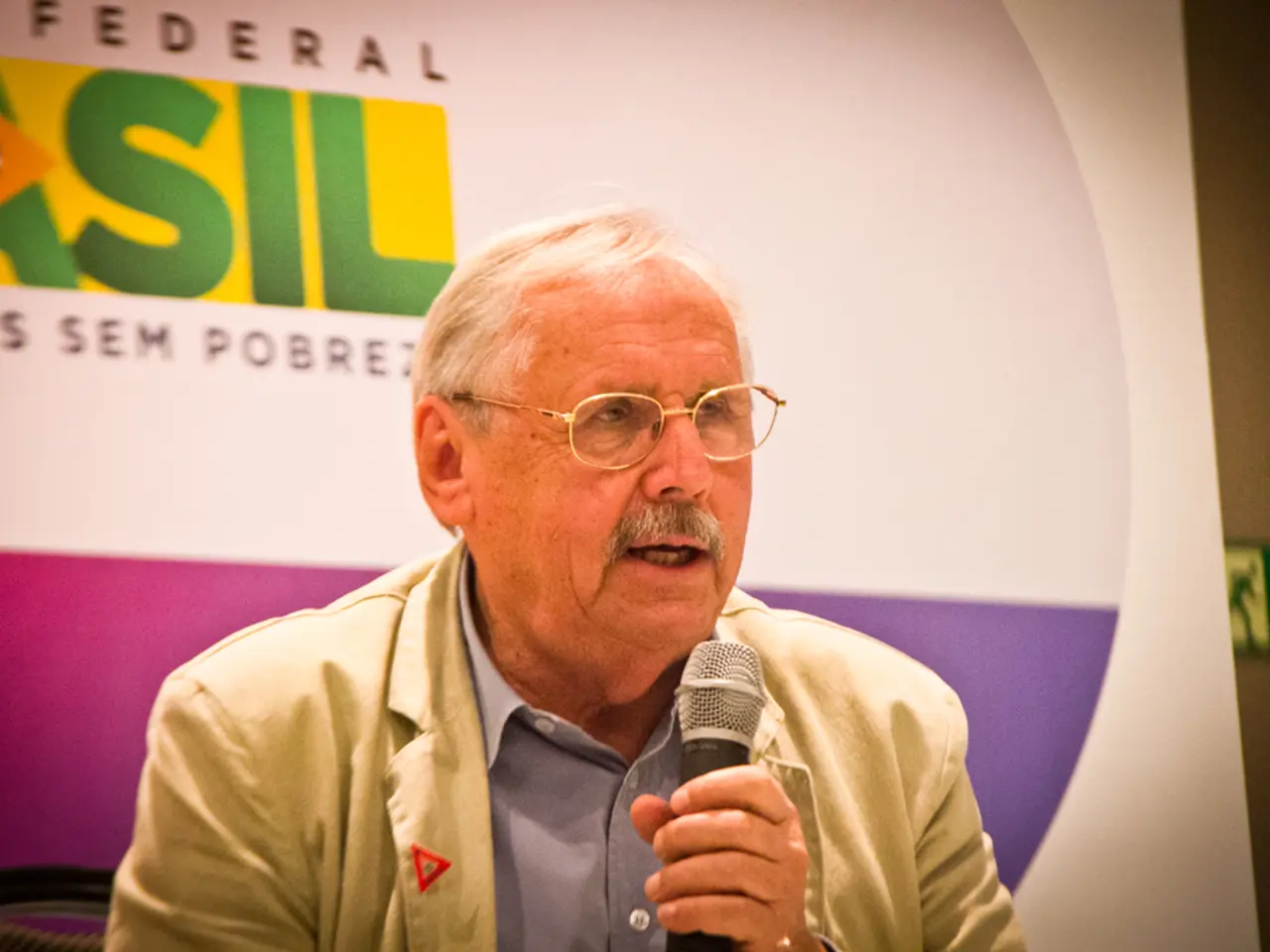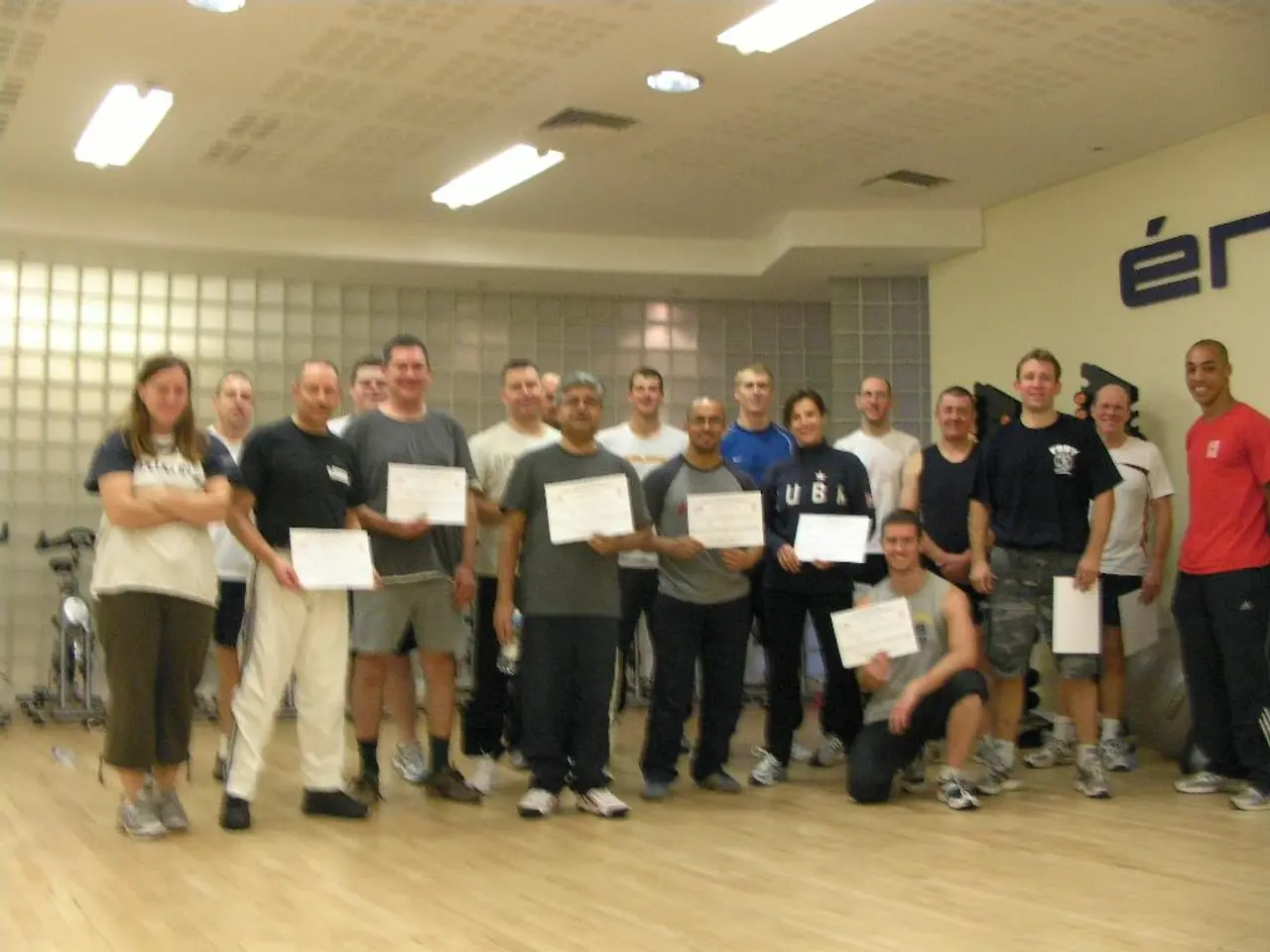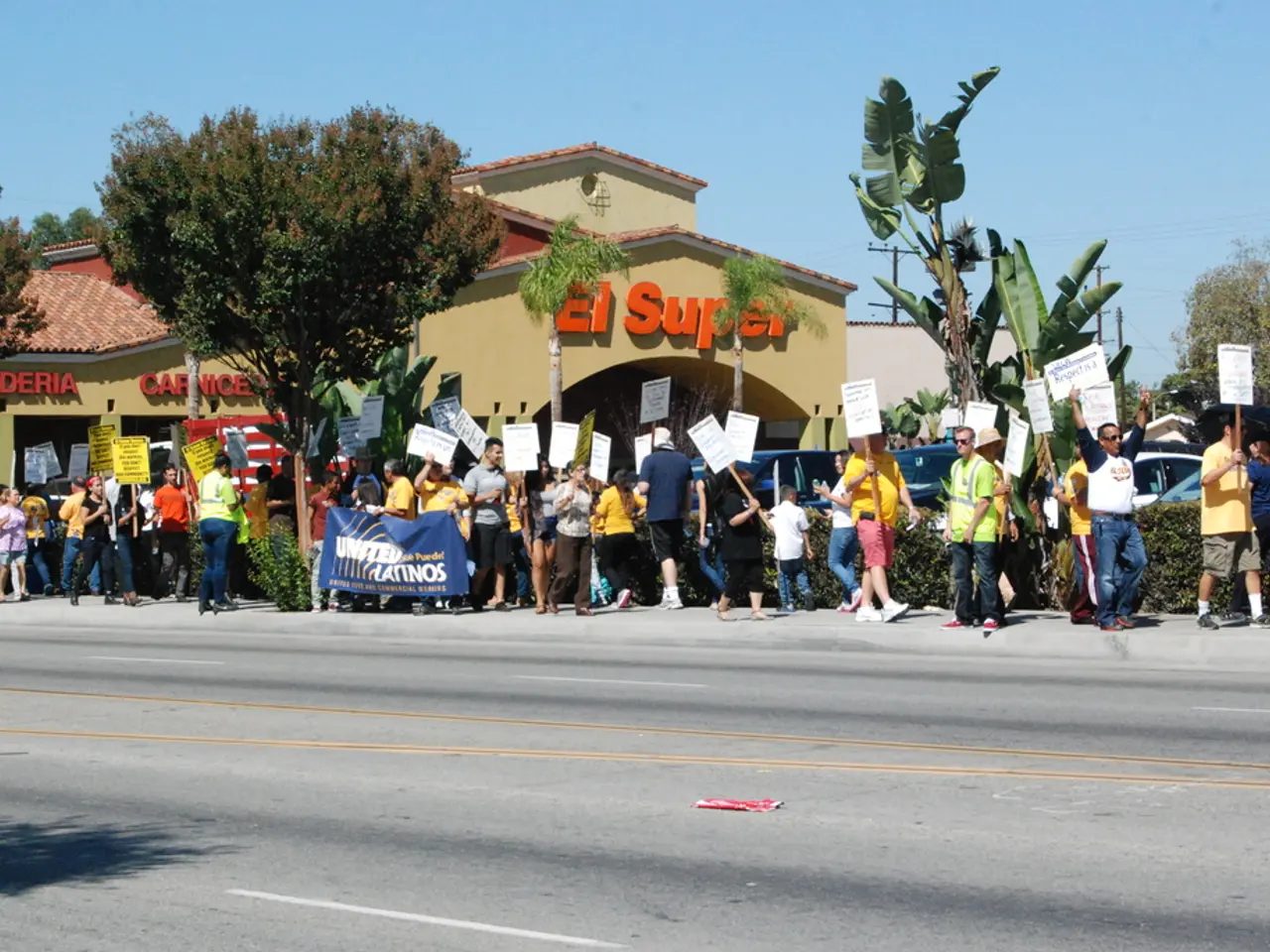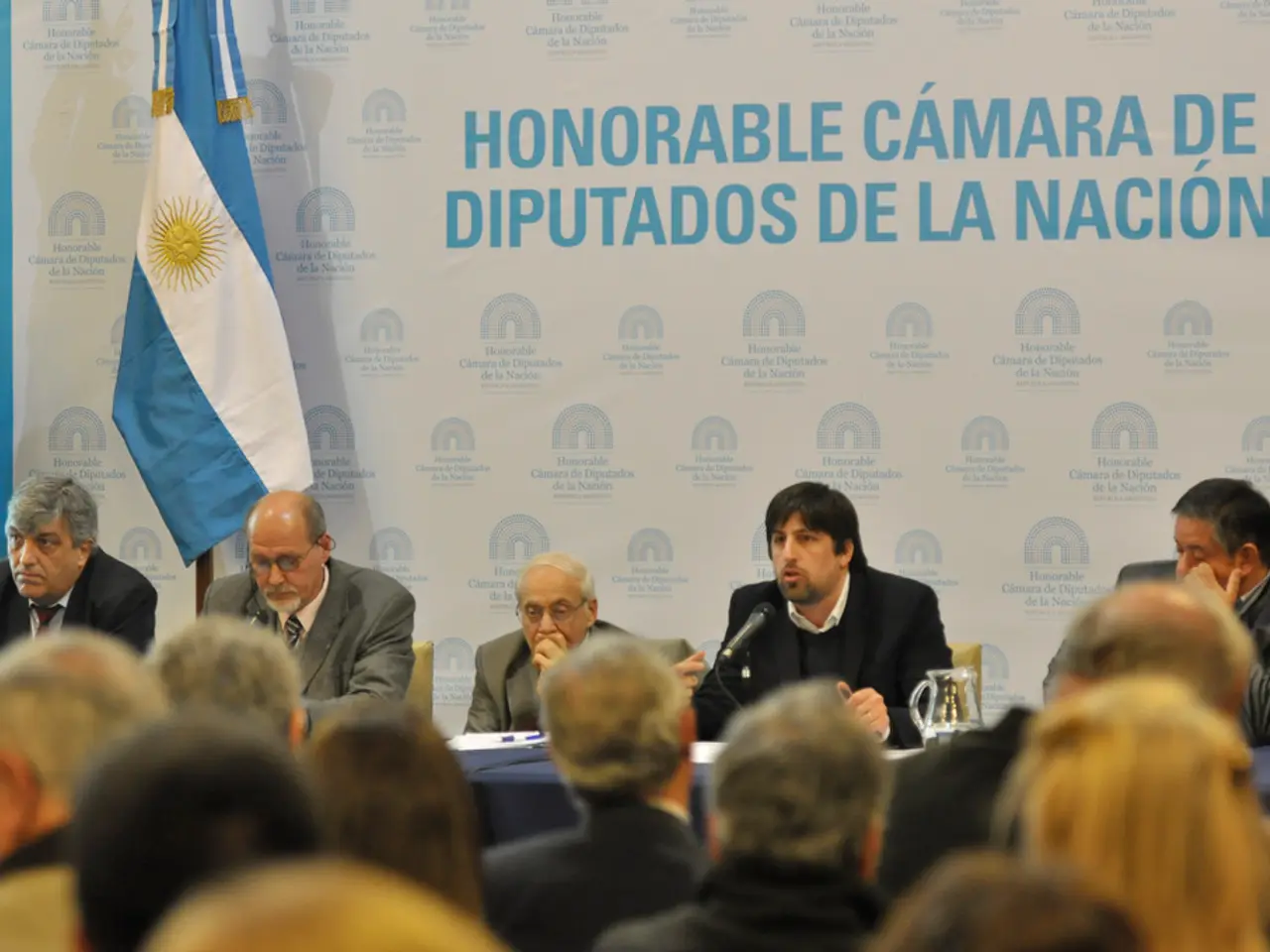Schröder to give testimony before the investigative panel via video link.
Former German Chancellor Gerhard Schröder will testify before the Schwerin state parliament investigative committee regarding the Climate and Environmental Protection Foundation, but his appearance will be via a video link instead of in person, sparking concerns about public access to the proceedings.
The video testimony, scheduled for October 17th from Schröder's office in Hannover, is one of the topics of the committee, which aims to scrutinise the foundation's activities and the roles of those involved. The concerns about excluding the public relate to transparency and accountability, as allowing public and media presence ensures that the process is open and subject to public scrutiny.
The Climate and Environmental Protection Foundation MV was founded in early 2021 to secure the completion of the Nord Stream 2 pipeline, which was threatened by US sanctions. Schröder, who was active for Russian energy companies for many years, including as president of the supervisory board of Nord Stream 2 AG, is a key figure in the investigative committee's inquiry.
However, the reasons for Schröder's video testimony have not been explicitly detailed. Typically, such arrangements arise due to logistical challenges, political sensitivities, or security considerations, especially involving high-profile figures like Schröder.
The opposition parties in Schwerin hope to gain insights into possible Russian influence on decisions by the Mecklenburg-Vorpommern state government. The country that founded the foundation intends to fully withdraw from it.
Committee chairman Sebastian Ehlers has expressed skepticism about excluding the public, and Hannes Damm of the Greens finds a non-public interrogation of Schröder unacceptable. The transmission will take place without public access, but Schröder will be allowed breaks during the testimony.
Schröder was diagnosed with burnout in the spring and was unable to attend the scheduled hearing in Schwerin. The foundation, which was endowed with 20 million euros by Nord Stream 2 AG, is now led by a new board. Schröder proposes a video interrogation as a compromise for the missed hearing.
The foundation was intended to be dissolved in response to Russia's invasion of Ukraine, but failed for legal reasons. The publicity is a central principle of parliamentary investigative committees and is protected by the constitution, making the lack of public access a source of concern for democratic oversight and the investigation’s integrity.
- The investigation into Schröder's involvement with the Climate and Environmental Protection Foundation, especially given its connection to the Nord Stream 2 pipeline and potential Russian influence, is a matter of significant 'politics' and 'general news'.
- The committee's scrutiny of war-and-conflicts-related policies and legislation, such as the US sanctions on the Nord Stream 2 pipeline, is further complicated by the decision to conduct Schröder's testimony via a video link, sparking concerns over 'transparency' and 'accountability'.
- As migration and environmental issues continue to be part of global discussion, the public's access to Schröder's questioning by the Schwerin state parliament investigative committee is crucial for maintaining the 'public access' and 'openness' essential to democratic oversight and the investigation's 'integrity'.





